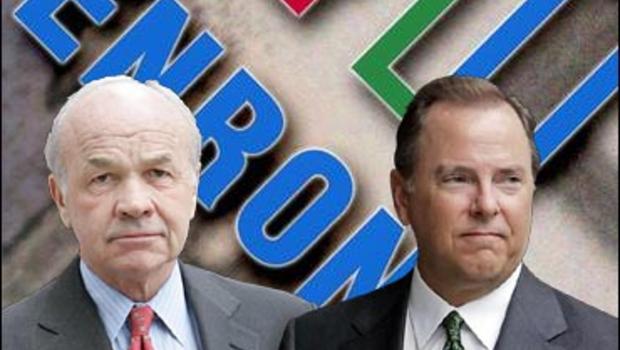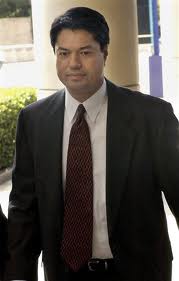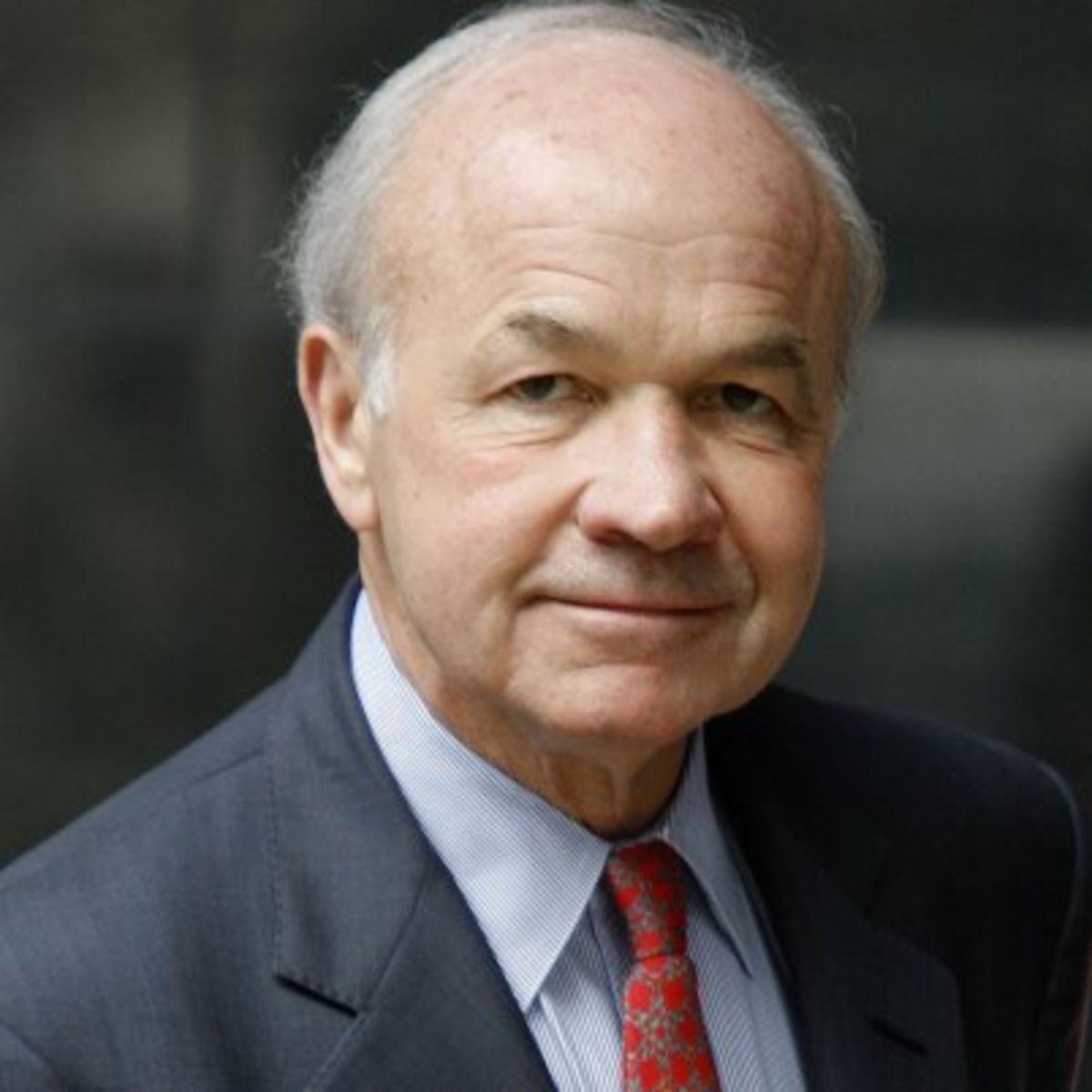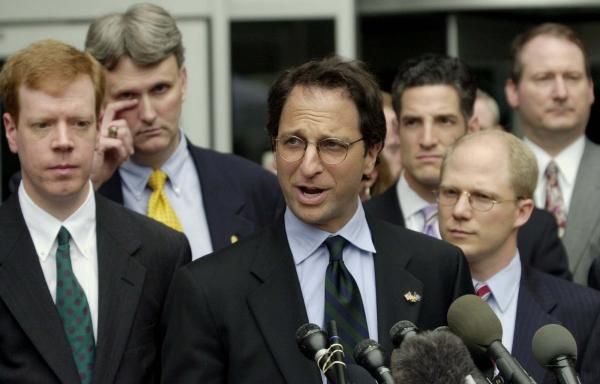 Long trials tend to settle into a rhythm, and the criminal trial against former key Enron executives Ken Lay and Jeff Skilling is no exception.
Long trials tend to settle into a rhythm, and the criminal trial against former key Enron executives Ken Lay and Jeff Skilling is no exception.
After four weeks of trial, the prosecution has put on three substantive witnesses. Each one has gone through a heavily-scripted direct examination in which they confidently accuse Lay and Skilling of making various misleading statements to the investing public and employees.
Then, defense attorneys on cross-examination chip away at the prosecution witnesses’ testimony on direct, and the witnesses gradually become far less decisive in their accusations than they were during their testimony on direct examination. Much of the testimony is quite boring, but — as with a baseball game — short bursts of really interesting activity breaks up the tedium. And U.S. District Judge Sim Lake provides a steady hand and a dry wit to the proceedings.
The testimony this week of former Enron investor relations executive Paula Rieker was a case in point.
The prosecution rolled through direct examination of the business-like Ms. Rieker in a little less than a day, and the prosecution appeared to score some jury points when she testified on Tuesday afternoon that an Enron director characterized (how was this not excluded as inadmissible hearsay?) Lay’s use of the line of credit component of his compensation package “as an ATM machine.”
Then, Bruce Collins, the member of the Lay defense team who handled cross-examination of Ms. Rieker, opened his cross-examination on a questionable note, suggesting in a question to Rieker that Lay’s draw of about a million dollars on his company line of credit days before the company filed its chapter 11 case was just “a drop in the bucket” given the magnitude of the company’s other matured liabilities at the time.
Inasmuch as Rieker’s “no, sir” response to that question was probably the same as every juror would have answered if asked the same question, Tuesday concluded as a good day for the prosecution, particularly in its case against Lay, who had barely been mentioned by the first two witnesses, Mark Koenig and Ken Rice.
Collins steadied himself over the next day and a half of cross-examination and methodically took Rieker through each one of her accusations against Lay, and she conceded that Lay had never asked her to make any misleading statements or to do anything wrong, for that matter.
However, Rieker was composed responding to questions from Collins and she often extrapolated on her answers despite Collins’ attempts to cut off her off. Thus, a day and a half of initial cross-examination was rather dull in comparison to the relative excitement of Rieker’s Tuesday afternoon testimony.
But that all changed quickly when Skilling lawyer Daniel Petrocelli began his cross-examination late yesterday morning.
In as effective cross-examination of a difficult prosecution witness that I have seen in awhile, Petrocelli immediately disassembled Rieker, catching her right off the bat in a lie about her duties at Enron (“I overstretched,” conceded Rieker).
He then took her through the extraordinary compensation that she had earned ($5 million combined in 2000 and 2001 alone) and the confidential $300,000 bonus that she had accepted from the company just three days before Enron declared bankruptcy (how on earth did the prosecution not attempt to diffuse that fact by bringing it out on direct?).
You were being paid all this money and you never told Skilling or Lay that they were making misleading statements?, Petrocelli effectively asked Rieker repeatedly.
Almost instantaneously, the previously poised Rieker became tense and agitated, and her answers to Petrocelli’s questions increasingly were evasive and often simply non-responsive.
The prosecution’s frequent objections (most of which were overruled) to Petrocelli’s questioning only underscored how effective Petrocelli’s cross-examination was in bringing the best prosecution witness in the trial to date back down to earth.
By the time Petrocelli had Rieker admitting that neither Skilling nor Lay had ever asked her to do anything wrong and that she had not been involved in any criminal activity in her position at Enron other than the insider trade on which her plea deal is based, the Enron Task Force lawyers had to be asking themselves “what happened to that advantage we had after Tuesday?”
Consequently, despite the enormous public relations advantage that the Enron Task Force enjoys in this case, my sense is that the Task Force continues to have big problems in making its case in court.
Almost a month into the trial, each of the Task Force’s substantive witnesses have initially lied to investigators for years until copping a plea in which they bargained for a reduced prison term and a substantial net worth in return for testifying against Lay and Skilling.
Virtually none of the testimony has supported a key element of the prosecution’s case — the alleged huge conspiracy within Enron to cover up the wrongdoing at the company — and Rieker admitted under questioning from Petrocelli that she had engaged in nothing of the sort while at Enron.
Despite alleging now that Lay and Skilling were involved in lying about Enron to the investment community years ago, none of the witnesses have produced any corroborating documentary evidence that they had any reservations at the time about the statements that Lay and Skilling were making. Similarly, none of the witnesses have testified that Lay or Skilling at the time ever admitted that they thought they were making misleading statements.
Doesn’t sound like much of a conspiracy, does it?
Meanwhile, a couple of behind-the-scenes developments also reflect disarray in the Task Force camp. Mirroring Rice’s infamous false testimony in the Enron Broadband Trial and the Task Force’s abysmal handling of that false testimony, it now appears that the prosecution had Rice testify, during the late stages of his testimony last week, regarding a dubious presentation document that the prosecution had failed to produce to the defense.
That prosecution oversight prompted the Lay-Skilling defense to consider bringing Rice back to testify regarding that suspicious document during the defense’s case-in-chief.
It’s usually not a good sign for the prosecution when a key prosecution witness performs so badly that the defense wants to use the witness in the defense’s case-in-chief.
But even more telling of the problems in the prosecution’s case is how little it has to do with the indictment against Lay and Skilling.
The prosecution does not want the jury to see the indictment and does not even want the Lay-Skilling defense team to be able to question witnesses about it.
Based on the prosecution’s presentation of its case to date, it’s easy to see why — a substantial amount of the testimony that the prosecution has elicited from its witnesses is simply not in either the indictment or the statements in compliance against Lay and Skilling.
While reading the transcripts from the trial, I keep a copy of the indictment and the statements in compliance handy so that I can refer to them when I read about something in the transcripts that I had not previously read about in those documents.
I have counted at least three substantive areas that the prosecution has raised extensively during direct examination of its witnesses that are not in either the indictment or the statements in compliance — disclosure issues relating to sales of the “Peaker plants” in 2001, the alleged “newfound” penny of earnings in the fourth quarter of 1999, and issues relating to warrants and monetizations on something called ResCo.
Apart from the Constitutional issue that defendants must be given fair notice of what the government intends to prove at trial — particularly in regard to an indictment that paints as broad a brush as this one does — the raising of new issues during trial is yet another indication that the Task Force is not confident in its case and is willing to take substantial trial risks in an attempt to make a case against Lay and Skilling.
Such tactics are at least consistent with the Task Force’s fingering of dozens of unindicted co-conspirators under its increasingly hollow conspiracy theory, which is a transparent tactic to induce former Enron executives who have exculpatory testimony for Lay and Skilling to assert their Fifth Amendment privilege and not testify out of fear of being indicted themselves.
After the typical three day weekend break, the trial cranks back up Monday as the prosecution calls former Enron trading unit accountant Wes Colwell, who cut a deal with SEC and who apparently has been cooperating with the Task Force under some sort of non-prosecution agreement. After Colwell, the order of witnesses is currently expected to be accountant Wanda Curry, former trader Timothy Belden and former trading executive David Delainey.
Like this:
Like Loading...
 In the law discussion equivalent of a high-caliber wrestling match, law professors Moin Yahya and Larry Ribstein square off in this Point of Law discussion over a subject addressed in this earlier post — the increasingly common practice of short-sellers and class action securities fraud plaintiffs’ attorneys banding together to drive the price of a company’s stock down, and then — after profiting from the short sale of the company’s stock — cashing in again on a class action lawsuit against the company.
In the law discussion equivalent of a high-caliber wrestling match, law professors Moin Yahya and Larry Ribstein square off in this Point of Law discussion over a subject addressed in this earlier post — the increasingly common practice of short-sellers and class action securities fraud plaintiffs’ attorneys banding together to drive the price of a company’s stock down, and then — after profiting from the short sale of the company’s stock — cashing in again on a class action lawsuit against the company.








